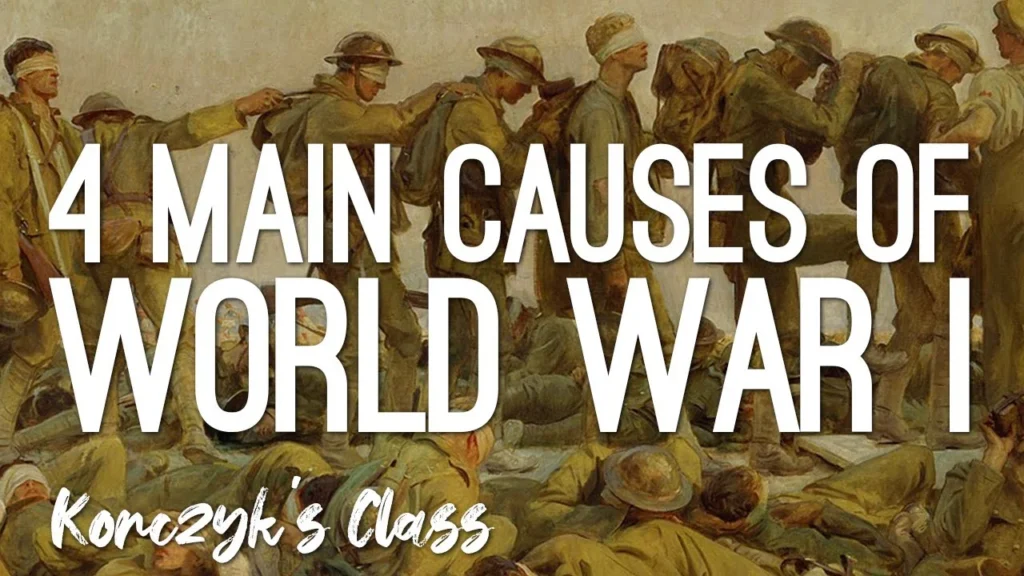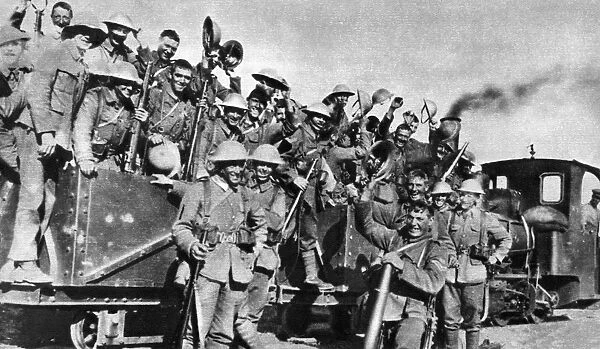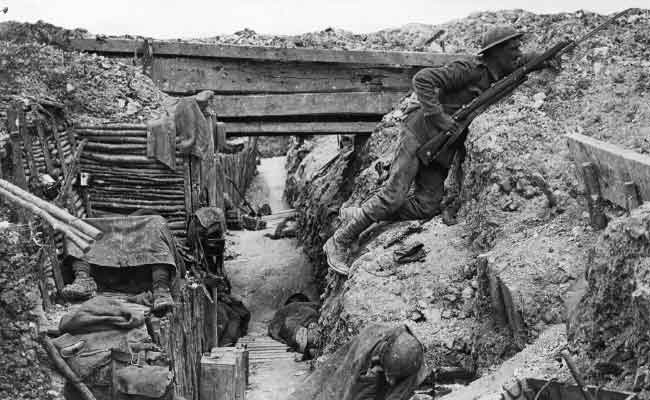World War I: World War I, also known as the Great War, was a global conflict that lasted from 1914 to 1918. The war involved the major world powers at the time, including the Central Powers of Germany, Austria-Hungary, and the Ottoman Empire, and the Allied Powers of France, the United Kingdom, and Russia. The war had a profound impact on the world and changed the course of history in many ways.
Causes of World War I

The causes of World War I are complex and multifaceted. One of the main causes was the system of alliances that had developed among the major powers in Europe. These alliances meant that if one country went to war, its allies were obligated to support it. This created a situation in which a conflict between two countries could quickly escalate into a global war.
Another cause of the war was the intense nationalism that existed in Europe at the time. Countries were fiercely proud of their national identities and were willing to go to war to defend them. This nationalism was particularly strong in the Balkans, where a number of countries were competing for territory and influence.
The assassination of Archduke Franz Ferdinand of Austria-Hungary by a Serbian nationalist was the immediate trigger for the war. Austria-Hungary saw this as an act of aggression by Serbia and declared war on the country. This led to a chain reaction in which other countries were drawn into the conflict.
Major Battles of World War I
World War I was fought on multiple fronts, with some of the major battles taking place in Europe, the Middle East, and Africa.
One of the most significant battles of the war was the Battle of the Somme, which took place in 1916 in France. The battle lasted for four months and resulted in over a million casualties. The battle was significant because it was the first time that tanks were used in warfare.
Another major battle was the Battle of Gallipoli, which took place in 1915 in Turkey. The battle was an attempt by the Allies to open up a new front in the war and was a failure, resulting in over 100,000 casualties.
The Battle of Jutland, which took place in 1916 in the North Sea, was the largest naval battle of the war. The battle was fought between the British and German navies and resulted in over 8,500 casualties.
Impact of World War I
World WarI had a profound impact on the world, both in the short and long term. One of the most immediate impacts was the large number of casualties. The war resulted in over 16 million deaths and 20 million injuries.
The war also had a significant impact on the economies of the countries involved. The cost of the war was immense, and many countries went into debt to finance their war efforts. The war also led to a number of technological advances, particularly in the areas of weapons and transportation.
Perhaps the most significant impact of the war was its role in shaping the political landscape of the world. The war led to the collapse of several empires, including the Ottoman Empire and the Austro-Hungarian Empire. It also led to the rise of new political movements, such as communism and fascism.
Legacy of World War I

The legacy of World War I can still be felt today, nearly a century after the end of the war. The war set the stage for World War II, which was even more devastating than the first. It also led to the formation of the League of Nations, an international organization designed to prevent future wars.
The war also had a profound impact on art and literature. The war inspired a number of works of art, including the poetry of Wilfred Owen and the paintings of Paul Nash.
Read Also: World War II
![]()






One thought on “World War I”